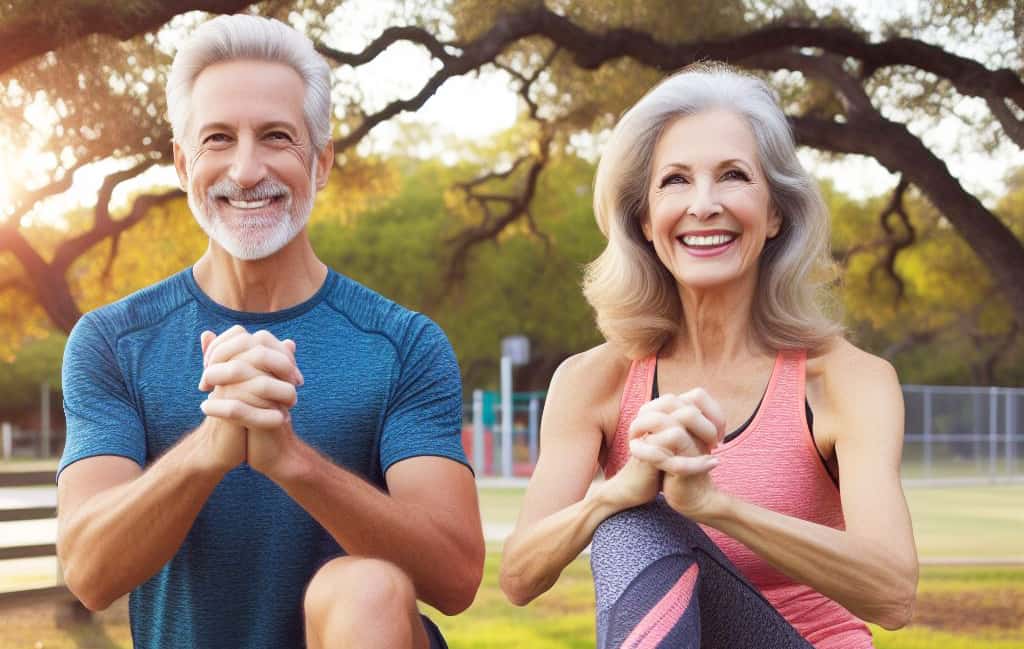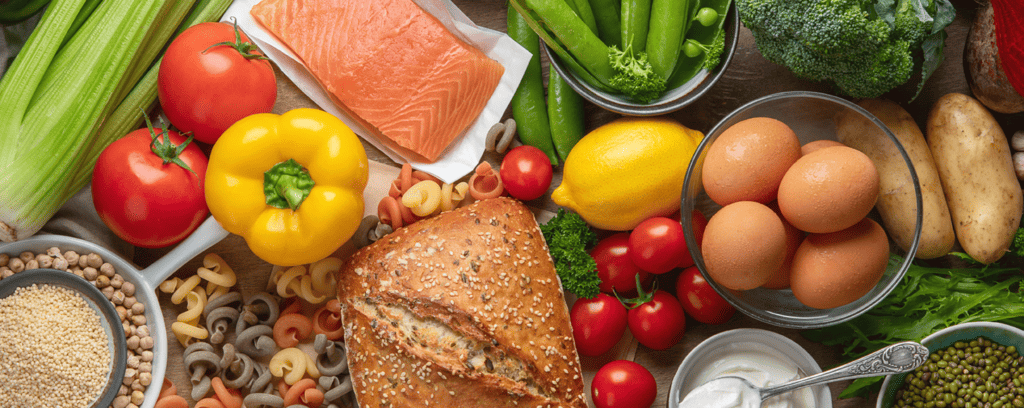
On the Move in 2024: A Guide to Exercising and Staying Healthy While RV Traveling

Embracing the RV lifestyle is an adventure like no other, but it comes with its unique challenges—especially when it comes to staying healthy and active on the road. In this guide, we’ll explore practical tips and strategies for incorporating exercise, maintaining a balanced diet, and prioritizing overall well-being during your RV travels.
Consistency is Key:
Consistent, moderate exercise is more beneficial than sporadic intense workouts. Aim for at least 150 minutes of moderate-intensity exercise per week.
Find Activities You Enjoy:
Choose exercises that you genuinely enjoy. Whether it’s dancing, hiking, or playing a sport, making fitness enjoyable increases the likelihood of sticking with it.
Mix It Up:
Incorporate a variety of exercises to engage different muscle groups. This can prevent boredom and provide a more comprehensive fitness benefit.
Include Strength Training:
Strength training is crucial for overall health. It helps build muscle mass, boost metabolism, and improve bone density. Include resistance training exercises at least twice a week.
Stay Hydrated:
Hydration is essential for effective workouts. Drink water before, during, and after exercising to stay properly hydrated, especially in Texas!
Warm-Up and Cool Down:
Always warm up before exercising to prepare your muscles and joints. Likewise, cool down afterward to help your body recover and prevent injury.
Set Realistic Goals:
Establish achievable fitness goals. Gradually increase the intensity and duration of your workouts to avoid burnout or injury.
Incorporate Cardiovascular Exercise:
Cardio exercises, like walking, running, or cycling, improve heart health and help burn calories. Aim for at least 30 minutes of moderate-intensity cardio most days of the week.
Prioritize Posture:
Maintain good posture during exercises to prevent strain on your muscles and joints. This is particularly important for activities like weightlifting.
Listen to Your Body:
Pay attention to your body’s signals. If you feel pain (not to be confused with the discomfort of a challenging workout), take a break and consult with a healthcare professional if needed

Healthy Eating Tips:
Emphasize Whole Foods:
Focus on whole, minimally processed foods such as fruits, vegetables, whole grains, lean proteins, and healthy fats. These provide essential nutrients and are generally lower in calories.
Portion Control:
Be mindful of portion sizes to avoid overeating. Use smaller plates, and listen to your body’s hunger and fullness cues.
Balanced Meals:
Create balanced meals that include a mix of carbohydrates, proteins, and fats. This helps regulate blood sugar levels and provides sustained energy.
Limit Processed Foods:
Reduce your intake of processed and sugary foods. Opt for whole, nutrient-dense alternatives to support overall health.
Hydration Matters:
Drink plenty of water throughout the day. Sometimes, feelings of hunger can actually be signals of dehydration.
Plan and Prep Meals:
Plan your meals ahead of time and prepare healthy snacks. This can help you make better food choices and resist the temptation of unhealthy options.
Mindful Eating:
Eat slowly and savor each bite. Pay attention to your body’s hunger and fullness cues, and avoid distractions like screens during meals.
Include Fiber-Rich Foods:
Foods high in fiber, such as fruits, vegetables, and whole grains, contribute to feelings of fullness and aid in digestive health.
Moderation, Not Deprivation:
Allow yourself occasional treats, but practice moderation. Depriving yourself of favorite foods may lead to cravings and overindulgence later.
Consult a Professional:
If you have specific dietary goals or concerns, consider consulting with a registered dietitian or nutritionist for personalized guidance.
Conclusion
As you embark on the open road, remember that a healthy and active lifestyle is not only achievable but enhances the richness of your RV experience. Use this guide as a roadmap to cultivate habits that will contribute to a fulfilling and well-rounded journey. Remember, a healthy lifestyle is a combination of regular exercise, balanced nutrition, and overall well-being. It’s about making sustainable choices that contribute to your long-term health and happiness.
